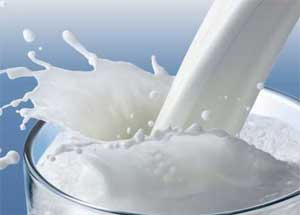- Home
- Editorial
- News
- Practice Guidelines
- Anesthesiology Guidelines
- Cancer Guidelines
- Cardiac Sciences Guidelines
- Critical Care Guidelines
- Dentistry Guidelines
- Dermatology Guidelines
- Diabetes and Endo Guidelines
- Diagnostics Guidelines
- ENT Guidelines
- Featured Practice Guidelines
- Gastroenterology Guidelines
- Geriatrics Guidelines
- Medicine Guidelines
- Nephrology Guidelines
- Neurosciences Guidelines
- Obs and Gynae Guidelines
- Ophthalmology Guidelines
- Orthopaedics Guidelines
- Paediatrics Guidelines
- Psychiatry Guidelines
- Pulmonology Guidelines
- Radiology Guidelines
- Surgery Guidelines
- Urology Guidelines
Milk and Dairy intake does not lower risk of total mortality: BMJ

Milk and other dairy products are widely consumed worldwide as they are an important source of protein, vitamin D, and calcium. It is presumed that they have a positive impact on health if taken in moderation.
A recent study suggests that people who consume lots of milk and cheese and yoghurt may not necessarily live any longer than those who don’t.
The researchers conducted three prospective cohort studies to examine the association of consumption of dairy foods with the risk of total and cause-specific mortality in women and men. They examined data on total dairy consumption for more than 168,000 women and more than 49,000 men without any history of cancer or heart disease. During about three decades of follow-up, 51,438 people died.
Compared to people with the lowest total daily consumption - an average of 0.8 servings a day - those who consumed the most dairy - an average of 4.2 servings daily - were 7% more likely to die during the study period. People who fell somewhere in between - with about one to three servings daily - had survival odds similar to individuals who consumed the least amount of dairy.
“Total dairy intake was not associated with a lower risk of total mortality,” lead study author Ming Ding of the Harvard School of Public Health in Boston and colleagues write in The BMJ.
“The health effects of dairy could depend on the comparison foods used to replace dairy,” Ding and colleagues write.
Some previous research has linked dairy consumption with a slightly lower risk of a wide range of health problems including high blood pressure, diabetes, heart disease and certain cancers, the study team writes. But high dairy consumption has also been linked with an increased risk of some cancers in some previous studies.
For the current analysis, researchers looked at data from the Nurses’ Health Study, Nurses’ Health Study II, and the Health Professionals Follow-up Study in the U.S. All three studies administered health questionnaires to participants every two years and also asked about eating habits.
People in these studies who consumed the most dairy were less likely to drink alcohol and smoke and more physically active than those with the least dairy in their diets, the study found.
In some instances, the type of dairy products people consumed also appeared to impact mortality.
A higher intake of skimmed or low-fat milk, for example, was associated with a slightly higher risk of death from all causes during the study as well as a greater chance of dying from heart disease or colorectal cancer, in particular.
Whole milk, meanwhile, was associated with a higher risk of death from all causes as well as from cardiovascular disease and cancer. Cheese and yoghurt didn’t appear to influence longevity, however.
When people substituted one daily serving of dairy for nuts and legumes, they had a 14% lower chance of dying during the study.
Swapping one serving of whole grains for one serving of dairy was associated with an 11% lower risk of dying during the study. But replacing one serving of dairy with one serving of red or processed meat was associated with a 5% higher risk of dying during the study.
The study wasn’t a controlled experiment designed to prove whether or how dairy consumption might directly impact mortality.
One limitation of the study is that most participants were white and working in the healthcare industry, and it’s possible that results might be different for people from other racial or ethnic groups or for individuals with different professions or incomes.
The results suggest that consuming dairy in moderation may mean people live longer, depending on what else is in their diets, the study team concludes.“Two servings per day of dairy consumption were associated with the lowest cardiovascular mortality, but higher intake was associated with slightly higher mortality, especially cancer mortality,” the researchers conclude.
The researchers concluded that the data from large cohorts do not support an inverse association between a high amount of total dairy consumption and risk of mortality. The health effects of dairy could depend on the comparison foods used to replace dairy. Slightly higher cancer mortality was non-significantly associated with dairy consumption but warrants further investigation.
Journal- The BMJ
For further reference log on to: doi.org/10.1136/bmj.l6204

Disclaimer: This site is primarily intended for healthcare professionals. Any content/information on this website does not replace the advice of medical and/or health professionals and should not be construed as medical/diagnostic advice/endorsement or prescription. Use of this site is subject to our terms of use, privacy policy, advertisement policy. © 2020 Minerva Medical Treatment Pvt Ltd